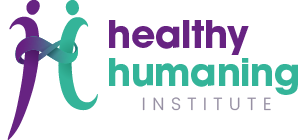How an Evening Out With a Friend Revealed Old Wounds and New Growth
Something happened the other day that I didn’t expect—a simple plan to hang out with a friend unearthed a whole mess of realizations about childhood experiences, self-protective habits, and how far I’ve come in my journey toward healthy relationships.
Let me set the scene:
The “Let’s Get Together Soon” Game
You know the one. Two adults, caught in the whirlwind of life, trying to pin down a time to hang out that never seems to materialize. But this time, I decided to prioritize the friendship. I threw out an invite:
“Are you free Monday? Let’s go to that amazing sushi place!”
The reply came back: “That’s not in my budget this week. How about [Option A] or [Option B]?”
Now, here’s the thing: we LOVE when people honor their limits. Whether it’s money, time, or energy, respecting boundaries is crucial to Healthy Humaning. But here’s what threw me: my immediate impulse was to say, “Oh, don’t worry—I’ll treat you.”
The Reflex to Pay: Where Did That Come From?
There’s nothing inherently wrong with offering to pay for a friend. But why was my knee-jerk reaction to do so, especially when they’d already presented two perfectly reasonable and appealing alternatives?
I knew why.
I grew up equating financial generosity with connection. In my teens and early adulthood, I often played the role of “banker” in my friendships. I’d treat friends to outings, meals, and gifts, desperate to feel liked and included. It was modeled to me growing up: if someone couldn’t afford something, you stepped in to cover it.
What I didn’t see at the time was the behind-the-scenes—whether my parents could actually afford to be so generous or whether they, like me, were trying to buy their way into connection.
Old Habits Die Hard
As a kid, I wasn’t taught how to differentiate between healthy friendships and relationships that took advantage of my generosity. I didn’t have the tools to say no—or to understand that real friends wouldn’t disappear just because I couldn’t or didn’t want to pay.
When I started saying no, the fallout was swift. People left. Plans were canceled without me. And manipulation became common: “If you really cared, you’d…” or “You owe me because…”
These experiences left scars, ones I thought I’d healed. But here I was, years later, with a wonderful, healthy friendship—and my brain still hit the panic button when money entered the equation.
The Present Moment: Pausing to Reflect
Thankfully, I’ve learned to pause and reflect. Instead of impulsively offering to pay, I stopped. I deleted the message and took a moment to ask myself:
Why was I so quick to offer to pay?
What’s wrong with the options they presented? (Spoiler: nothing.)
What do I actually want to do?
I realized that my reflex to pay was rooted in old, self-protective habits that no longer served me. This wasn’t a friendship built on manipulation or obligation. This was a responsive, reciprocal connection—exactly the kind of relationship I value.
After some thought, I responded: “Can we do both?” And we did. It was wonderful.
Connecting the Dots
This experience reminded me that healing isn’t linear. Just because I’ve worked through something doesn’t mean I’ll never feel echoes of it again. But instead of feeling shame, I see it as an opportunity for growth.
I’m grateful for the tools I have now: the ability to pause, reflect, and make fully informed decisions that align with my values. And I’m grateful for friendships that allow me to show up as my authentic self—flaws, growth edges, and all.
What This Means for Healthy Humaning
At its core, Healthy Humaning is about intentional living and authentic connection. It’s about breaking old patterns, honoring boundaries (yours and others’), and building relationships rooted in mutual respect and care.
This experience was a reminder of how far I’ve come—and how far we can all go when we choose to live with intention.
